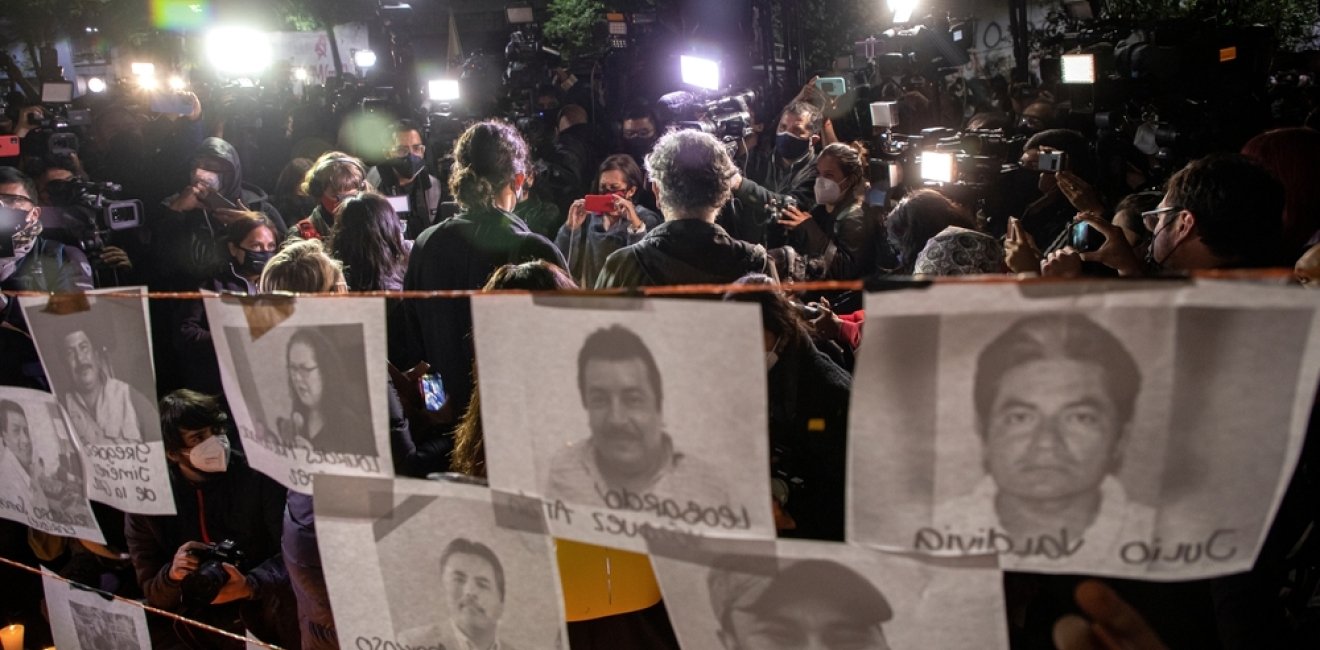
A blog of the Latin America Program
The proliferation of spyware, a new form of electronic spying, haunts journalism and freedom of expression worldwide, including in Latin America.
The use of spyware against journalists is increasingly common, and not only among authoritarian governments in developing countries. Pegasus, Predator and other malware have been detected in Saudi Arabia, Greece, Egypt, Spain, Poland and Mexico, with journalists – as well as political figures and social activists – subject to sophisticated, nearly undetectable remote monitoring.
There is a growing threat of spyware to journalism in Latin America, where reporters already face other forms of harassment and intimidation from both governments and organized crime syndicates. In particular, governments are using this new weapon to discourage investigative reporting at a time of worsening corruption in the region.
There is a growing threat of spyware to journalism in Latin America, where reporters already face other forms of harassment and intimidation from both governments and organized crime syndicates.
Most advanced versions of spyware – so-called “zero-click” spyware – can compromise an electronic device even when it is not in use. The result is that intruders can access hard drives, passwords, e-mails, internet usage histories, photos and computer files. Their capabilities also include activating cameras remotely and operating a smartphone’s microphone. Since encryption only occurs when data leaves a device, it offers little defense against spyware.
As spyware becomes more prevalent, news media organizations will struggle to protect sources of information that are critical to investigative reporting. To meet this challenge, journalists must also rethink how to approach this issue and help the public understand why it matters.
El Salvador is the most worrisome case in the region. According to Ronald Deibert, director of the Citizen Lab at the Munk School of Global Affairs at the University of Toronto, 35 Salvadoran journalists and civil society figures, most of whom worked for the digital newspaper El Faro, suffered more than 250 Pegasus attacks between July 2020 and November 2021.
It is no surprise El Faro was targeted. Journalists from El Faro have uncovered a range of questionable conduct by President Nayib Bukele, including his secret negotiations to release Salvadoran gang leaders in exchange for electoral support and his controversial introduction of cryptocurrencies in the country. Since coming to power, Bukele has consistently bullied the Salvadoran news media, and not only through abusive tweets or attacks on national TV broadcasts. El Faro and Revista Factum, for example, have been denied access to crime scenes when reporting on violence. In April, Bukele’s allies in congress approved a reform to the criminal code that could lead to sentences of up to 15 years for journalists who report on gang violence in one of the world’s most violent countries. In Reporters Without Borders’s World Press Freedom Index, El Salvador has slipped from 76th place in 2020 to 82nd place in 2021.
In April, Bukele’s allies in congress approved a reform to the criminal code that could lead to sentences of up to 15 years for journalists who report on gang violence in one of the world’s most violent countries.
Bukele, however, is hardly the only president at war with the news media. In Mexico, President Andrés Manuel López Obrador’s hostility to journalists is on display at many of his televised daily press conferences, known as Mañaneras. “Information cannot be left in the hands of the underworld,” he said in December in one of many attempts to delegitimize the press. In a letter, 170 Mexican journalists implored him to stop insulting journalists after Ciro Gómez Leyva, one of the country’s best-known reporters and a frequent target of the president’s attacks, was shot. Last year, Mexico was the world’s most lethal country for journalists, with 17 killed. In October, the hacktivist group Guacamaya revealed that the Mexican army spies on journalists and activists, a tactic also used by its counterparts in Peru to target critics of the strategic mining industry.
For his part, the former president of Brazil, Jair Bolsonaro, established a “hate office” that used trolls on social media to discredit critics of his government, including journalists, activists, politicians and artists. In Venezuela, the authoritarian regime and the largest provider of mobile phone services collaborated to monitor the cell phones of 1.5 million people, including many journalists.
Amid these growing tensions between governments and the news media in Latin America, remote monitoring malware, such as Pegasus, threatens to tip the scales in favor of governments that are attempting to neutralize an essential institution for democracy.
Until now, the major response to illegal government spying in Latin America has been digital counterattacks, such as the Guacamaya leaks. Hacktivism, however, raises difficult questions, such as whether hacking government agencies is the best way to defend journalism, and what are the proper boundaries between journalists and hacktivists. In the United States, companies like Apple and Meta have sued the NSO Group, the maker of Pegasus, to protect user privacy. The U.S. Commerce Department restricted the NSO Group’s access to U.S. technology. In November, the Knight First Amendment Institute at Columbia University sued the NSO Group on behalf of journalists from El Faro.
Without a coordinated, vigorous response from the region’s media companies, and far greater international support, a surveillance culture will take root in Latin America, intimidating both reporters and their sources and leading to self-censorship and less scrutiny of governments.
These are positive steps, but they are not enough. Without a coordinated, vigorous response from the region’s media companies, and far greater international support, a surveillance culture will take root in Latin America, intimidating both reporters and their sources and leading to self-censorship and less scrutiny of governments. Educating journalists about the spyware threat would be a good first step – journalists need to be prepared if they experience strange behavior from their phones and other devices. Efforts to raise public awareness about the threats spyware pose to democracy and the need for better laws and regulations are also crucial. Ultimately, however, it will be necessary to convince the governments in the region never to use spyware against journalists.
Author

Independent journalist and editor

Latin America Program
The Wilson Center’s prestigious Latin America Program provides non-partisan expertise to a broad community of decision makers in the United States and Latin America on critical policy issues facing the Hemisphere. The Program provides insightful and actionable research for policymakers, private sector leaders, journalists, and public intellectuals in the United States and Latin America. To bridge the gap between scholarship and policy action, it fosters new inquiry, sponsors high-level public and private meetings among multiple stakeholders, and explores policy options to improve outcomes for citizens throughout the Americas. Drawing on the Wilson Center’s strength as the nation’s key non-partisan policy forum, the Program serves as a trusted source of analysis and a vital point of contact between the worlds of scholarship and action. Read more

Explore More in Weekly Asado
Browse Weekly Asado
Dengue Haunts South America’s Summers

Lessons from Costa Rica’s Economic Transformation

Women and Latin America’s Digital Revolution

